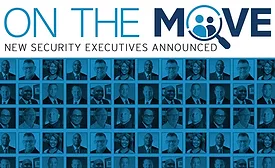Home » information security
Articles Tagged with ''information security''
The Security Implications of Quantum Technology
Quantum technology has begun and will continue to result in the introduction of new products and services into the global marketplace - all of which have security implications.
June 10, 2020
ON THE MOVE
June 2020: Security Executives on the Move
Security executives on the move! Which industry leaders have recently begun new roles?
June 9, 2020
Sign-up to receive top management & result-driven techniques in the industry.
Join over 20,000+ industry leaders who receive our premium content.
SIGN UP TODAY!Copyright ©2026. All Rights Reserved BNP Media.
Design, CMS, Hosting & Web Development :: ePublishing










